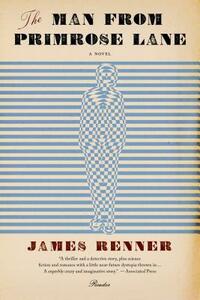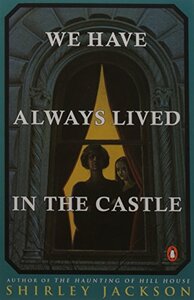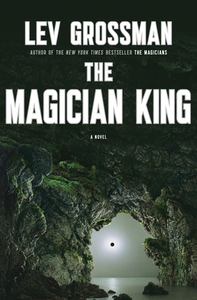You need to sign in or sign up before continuing.
Take a photo of a barcode or cover
sarahetc's Reviews (1.17k)
I laughed out loud in a few places, but in the end, this was its own brand of literary fiction navel gazing. The characters were just barely well-drawn enough that it was its own book, but otherwise, it's every other novel about middle-aged intellectuals who just decide not to cope and, in so doing, bestow great wisdom on others, maybe. Except there's no great wisdom. They had to put a goose on the cover because the fate of the goose (or geese, really), was pretty much the only reason I finished the book.
Spoiler alert: the geese make it. Duh.
Spoiler alert: the geese make it. Duh.
I read this book in a day because I needed to read this book in a day. I got this book on the exact day, at the exact moment I needed to. And that was after everything from thunderstorms to raging inconsolable toddlers kept me from it. I have never doubted that God loves me and takes care of me and actively participates in my life. Books like this just make it glaringly, incontrovertibly obvious. Recommended for drunks, Christians, Christian drunks, Christian drunks whose middle name is Christians and have toddlers that won't go to sleep when mama is doing her best to stay sober.
You know it's a good book when you just have to finish it, no matter what. But you can't because your heart is pounding and you're crying too hard to read the words! But they're happy tears! But still!
This compulsive read kept me up late, gave me nightmares, made me angry, made me very deeply confused and made me conclude that, like other books of late, might have been a story better suited to a different medium. Because it reads like the novelization of a TV show. A great, weird, compulsively watchable TV show, no doubt, but a TV show nevertheless. You can actually see the commercial breaks written into the story. And the chapter breaks become episodes. That the chapters themselves are called episodes occurred to me about 125 pages in and cemented the idea.
That said, the format is not particularly conducive to comprehension, especially with as many characters as the book features. Further, all those characters meet and interact in multiple different ways across many different times and the little commercial breaks jump from past to present to way past to... spoilers. There was a moment I got a little Funny Farm about it and wondered when I would see a flash sideways.
Despite all that, it's a helluva ride. Just when you think you've got it, snap! Now do you have it? NOPE. There were a few loose ends I think, but I also think that that's me personally and the book itself is a package just tidy enough to satisfy, with enough of a lingering aftertaste that, if a sequel appeared, I would snatch it for another glimpse of any part of the story.
That said, the format is not particularly conducive to comprehension, especially with as many characters as the book features. Further, all those characters meet and interact in multiple different ways across many different times and the little commercial breaks jump from past to present to way past to... spoilers. There was a moment I got a little Funny Farm about it and wondered when I would see a flash sideways.
Despite all that, it's a helluva ride. Just when you think you've got it, snap! Now do you have it? NOPE. There were a few loose ends I think, but I also think that that's me personally and the book itself is a package just tidy enough to satisfy, with enough of a lingering aftertaste that, if a sequel appeared, I would snatch it for another glimpse of any part of the story.
I know we all grow and change as people and that makes our tastes and preferences evolve. Five years ago I would have counted Christopher Moore one of my favorite authors. Bloodsucking Fiends was remarkable. I read A Dirty Job in one five-hour marathon in the Orlando airport. I laughed so hard at You Suck that I thought I was going to give myself a hernia. Along the way, though, working my way through his catalogue, I have had real moments of doubt. Island of the Sequined Love Nun was all title, little story. Fool was well-written, but lacking an essential something that I thought I had found before. And earlier this year (and really, I shouldn't read an author more than once per year, I know), Bite Me just totally fell flat. It was a mishmash of two short stories, neither of which was interesting enough in and of itself to have gone anywhere, so he sorta stitched them together and put it out there. Kona was, by far, the best part of that story-- and that's a story with a giant vampire tabby named Chet, which sounds impossible to make dull and yet it was so dull.
So here's Kona, too. Kona in Hawaii before Kona became the white Rasta helper of the vamps. And in the whole book, minor giggles at the idea of "action nerds" and all, Kona is about the only interesting part of the book. Like some of his others, this seems to be a novelization of a single idea and the story serves the idea, rather than the other way around. In this case, it's genes versus memes, with a side of OMG Save the Whales! I get that he has some great ideas and that they're inspiring. But this whole book feels like a ramshackle attempt to storify his conclusions about genes vs. memes without all the messy hard work of developing a real plot or characters or anything.
I don't know how long Kona was lurking in the back of his head or for what reasons. But Kona is one tertiary character who exists mainly for cheap laughs and he's the best part of the book. I think I'll pass on Moore from here on out, unless the book features him. Or C. Thomas Flood.
So here's Kona, too. Kona in Hawaii before Kona became the white Rasta helper of the vamps. And in the whole book, minor giggles at the idea of "action nerds" and all, Kona is about the only interesting part of the book. Like some of his others, this seems to be a novelization of a single idea and the story serves the idea, rather than the other way around. In this case, it's genes versus memes, with a side of OMG Save the Whales! I get that he has some great ideas and that they're inspiring. But this whole book feels like a ramshackle attempt to storify his conclusions about genes vs. memes without all the messy hard work of developing a real plot or characters or anything.
I don't know how long Kona was lurking in the back of his head or for what reasons. But Kona is one tertiary character who exists mainly for cheap laughs and he's the best part of the book. I think I'll pass on Moore from here on out, unless the book features him. Or C. Thomas Flood.
Way back in the day, I wrote a lot of fanfiction. Like, a lot a lot. Thousands and thousands of words of it and a few people really dug it. Having written way more fanfic than original anything, I am here to report that fanfic is fun because you can just tell a story. All the characterization and most of the setting is (usually, often) taken care of for you. So you pick a few phrases and a few tropes and then you just get to have a rollicking good time winging the wacky (or morose, or terribly dangerous or whatever) hijinx. It gives both the writer and the reader the chance to savor the best and favorite parts of the works without doing any work you don't really want to do.
So, that said, I bet you my bottom onion ring that this is a bit of fanfic that got a little bit big in some secret community and Danley got told this could be, like, a real book! And everything! And yes, I'm exaggerating. I'm sure it didn't happen like that. But it comes across like that. It's a tepid little exploration of a metanarrative that goes down the Aarne-Thompson list of types and tries to hit as many of the high points as coyly as possible. But what you're really left with is the idea that you're not getting the full story. You weren't in on the conversation that led to the story and so are left out of all the assumptions that go into it. She's just telling the story! Except she forgot that not everybody is in on the canon.
Further, it's just not that great a story.
Danley is clearly trying to write something entertaining and beautiful. But the plot is so loose and the characterization so very deeply reliant on a sophisticated and deep understanding of folklore that most people don't have that everything falls flat. I literally had to force myself to get through the last 10% of the book. If you get the urge to read it, just stop and go listen to "Into the Woods." Same ethos, better delivery.
So, that said, I bet you my bottom onion ring that this is a bit of fanfic that got a little bit big in some secret community and Danley got told this could be, like, a real book! And everything! And yes, I'm exaggerating. I'm sure it didn't happen like that. But it comes across like that. It's a tepid little exploration of a metanarrative that goes down the Aarne-Thompson list of types and tries to hit as many of the high points as coyly as possible. But what you're really left with is the idea that you're not getting the full story. You weren't in on the conversation that led to the story and so are left out of all the assumptions that go into it. She's just telling the story! Except she forgot that not everybody is in on the canon.
Further, it's just not that great a story.
Danley is clearly trying to write something entertaining and beautiful. But the plot is so loose and the characterization so very deeply reliant on a sophisticated and deep understanding of folklore that most people don't have that everything falls flat. I literally had to force myself to get through the last 10% of the book. If you get the urge to read it, just stop and go listen to "Into the Woods." Same ethos, better delivery.
We had a nice side discussion Saturday night at book club about books and movies seen too late. If you don't watch Alien as you're beginning your horror movie education, it's going to seem trite and derivative. Same goes for 2001 and techy sci-fi. The Haunting of Hill House for horror, natch, and I'm supposing that this is the original work of sociopathic misdirect. It was clever and the style is perfect Shirley Jackson-- beautiful words and perfect pacing. So beautiful and perfect, in fact, that everybody since has taken her as their mentor and produced reams and reams of sociopathic misdirect, most of which I have apparently read or seen prior to this. So as great a work of American literature as this must be, it never gave me the wiggins. It mostly just pissed me off. By the end I was hollering at the secondary characters and ready to punch Constance in the face. A great story, too late in the reading and with too little fear or sympathy of the mentally ill. Mostly I want to go back to college and have Dr. Schneibel give the low-down and then I'll feel better.
Where to start with this one? With the caveats and addenda: it's the second of three, and the third is not out yet, so don't read this without reading the first one. And maybe read it pretty swiftly after you read the first one, because I read The Magicians a few years ago and while I understood what was happening, I think I might have understood more had I not waited so long between installments.
That said, these are some of the same characters and some of the same story, but The Magician King is definitely not The Magicians. And I think, having slept on it, that the story itself is very disappointing. I know that when I finished the book last night, tired enough to want to finish, but unsatisfied with the ending enough to want it to go on, I was deeply disappointed. Yet I would have read another 200 pages if there were that many to read. Grossman is a strangely compelling author that way.
Or to put it another way, I really don't like his universe. It's undefined, reactionary, seemingly incomplete and full of pouty brats that could get a lot accomplished if they just acted like the grown-ups they claim to be. Further, everyone's insistence that Grossman is the new C.S. Lewis just makes me rage. He may be Lewis-adjacent, but there is nothing Narnian about Grossman's agnostic existentialist onanism. I just cannot comprehend how someone can be the thematic heir to something one is so clearly contemptuous of.
And yet, it was still a good book, despite my personal discomfort with it. And that's because Grossman, for all his philosophical defects, is a writer's writer. Dude can find a voice and stick with it. He can find many voices and write them so intricately that they take on their own timbres in your head. His use of filler words in speech, like "like" is so well done it strikes you-- wait, did I just read someone saying something exactly like I would say it? It's the language, and the poor characters and their dire fates, that keep me coming back.
Structurally the book could have used a serious fine tuning, but at the same time, it worked. Grossman parses out Julia's story to create a sense of tension, and it works, but it was two steps forward, one step back, each time. Her story, and the overall story of the Fillorian/Nietherlands/Magic universe were obviously connected, but I think Grossman could have done it a little better, a little more poetically. I'm sure that, because we're largely limited to Quentin and Julia as narrators, we aren't supposed to actually see the whole picture or understand it. Nevertheless, there's a nugget of greatness there that could have really benefited from a serious polish.
Perhaps all will be clear when book three appears. I hope so. I'm sure I'll read it. Because for all my criticisms, it was a nice book I enjoyed reading.
That said, these are some of the same characters and some of the same story, but The Magician King is definitely not The Magicians. And I think, having slept on it, that the story itself is very disappointing. I know that when I finished the book last night, tired enough to want to finish, but unsatisfied with the ending enough to want it to go on, I was deeply disappointed. Yet I would have read another 200 pages if there were that many to read. Grossman is a strangely compelling author that way.
Or to put it another way, I really don't like his universe. It's undefined, reactionary, seemingly incomplete and full of pouty brats that could get a lot accomplished if they just acted like the grown-ups they claim to be. Further, everyone's insistence that Grossman is the new C.S. Lewis just makes me rage. He may be Lewis-adjacent, but there is nothing Narnian about Grossman's agnostic existentialist onanism. I just cannot comprehend how someone can be the thematic heir to something one is so clearly contemptuous of.
And yet, it was still a good book, despite my personal discomfort with it. And that's because Grossman, for all his philosophical defects, is a writer's writer. Dude can find a voice and stick with it. He can find many voices and write them so intricately that they take on their own timbres in your head. His use of filler words in speech, like "like" is so well done it strikes you-- wait, did I just read someone saying something exactly like I would say it? It's the language, and the poor characters and their dire fates, that keep me coming back.
Structurally the book could have used a serious fine tuning, but at the same time, it worked. Grossman parses out Julia's story to create a sense of tension, and it works, but it was two steps forward, one step back, each time. Her story, and the overall story of the Fillorian/Nietherlands/Magic universe were obviously connected, but I think Grossman could have done it a little better, a little more poetically. I'm sure that, because we're largely limited to Quentin and Julia as narrators, we aren't supposed to actually see the whole picture or understand it. Nevertheless, there's a nugget of greatness there that could have really benefited from a serious polish.
Perhaps all will be clear when book three appears. I hope so. I'm sure I'll read it. Because for all my criticisms, it was a nice book I enjoyed reading.
I feel like a heel for saying anything critical about this book. But I am going to be critical. Not of Katie, or her calling, or any of the beautiful, remarkable things that this book is about. As a work of nonfiction, I can do that here. I can hear the message while still being dissatisfied with the megaphone.
That said, this book got good in the last 20 pages. In the last third, maybe, there was a real sense of Katie as an actual human woman, an actual Old Mother Hubbard as she joked early on, who, although deeply, magnificently devoted to Christ, is still just one woman. One woman, with a team of children, a calling so big it's nearly incomprehensible and a bunch of about three pennies and a paper clip. Only in the last third did she come across as this human-- overwhelmed, bawling, snapping, angry, unbelieving, whipped, wiped-out and desperate. And the book was all the better for it. Her story of having to return one of her foster babies, whom she was in the process of adopting, was the first time I saw a real woman and a real mother. She writes of running into the backyard to catch the baby up, screaming for Jesus to help. And when the police car drives away with the child in custody, she talks about falling on her butt in the gravel, unable to move from grief. That's real. That's a person with real feelings, no matter how much she loves Jesus.
But prior to that, the book was very Brentwood Homecoming Queen Loves Jesus, Moves to Uganda. And I can say that, because I grew up in Brentwood, too. Bless Katie Davis, but she needs a new ghostwriter. She is following Jesus like few people now ever would. She is getting into Mother Teresa territory. But her ghostwriter seems to want her to concentrate on the massive contrast between Brentwood the Bubble and Uganda the Mission Field. The whole time I just kept wanting to hear more about her real feelings-- not what she expected people would expect her to feel. But her actual feelings. And they do not come through at all.
It's 120 pages of a co-ed screaming Onward Christian Soldiers (which is all well and good!) and 60 of a real woman and mother giving up everything to follow Christ. I hope there's more of the later where it came from.
That said, this book got good in the last 20 pages. In the last third, maybe, there was a real sense of Katie as an actual human woman, an actual Old Mother Hubbard as she joked early on, who, although deeply, magnificently devoted to Christ, is still just one woman. One woman, with a team of children, a calling so big it's nearly incomprehensible and a bunch of about three pennies and a paper clip. Only in the last third did she come across as this human-- overwhelmed, bawling, snapping, angry, unbelieving, whipped, wiped-out and desperate. And the book was all the better for it. Her story of having to return one of her foster babies, whom she was in the process of adopting, was the first time I saw a real woman and a real mother. She writes of running into the backyard to catch the baby up, screaming for Jesus to help. And when the police car drives away with the child in custody, she talks about falling on her butt in the gravel, unable to move from grief. That's real. That's a person with real feelings, no matter how much she loves Jesus.
But prior to that, the book was very Brentwood Homecoming Queen Loves Jesus, Moves to Uganda. And I can say that, because I grew up in Brentwood, too. Bless Katie Davis, but she needs a new ghostwriter. She is following Jesus like few people now ever would. She is getting into Mother Teresa territory. But her ghostwriter seems to want her to concentrate on the massive contrast between Brentwood the Bubble and Uganda the Mission Field. The whole time I just kept wanting to hear more about her real feelings-- not what she expected people would expect her to feel. But her actual feelings. And they do not come through at all.
It's 120 pages of a co-ed screaming Onward Christian Soldiers (which is all well and good!) and 60 of a real woman and mother giving up everything to follow Christ. I hope there's more of the later where it came from.
Super duh for me, but maybe not for you. That said, there's so much of this book that is just so very square one, for lack of a better term, that I don't know how anybody who cares enough to understand that a family eating together is a good thing and goes so far as to seek out a book about it, will not already know half of this. For real, I'm trying to picture the moms and dads for whom this book is a revelation and I can't because I don't want to think about people like that existing. I know they do, but I don't want to think about it.
This book isn't about meals so much as it's a respectful communication manual with a few recipes thrown in. There are large chunks dedicated to pull-quotes and vaugely off-topic annecdotes. The whole thing comes across like three friends got together and said, "I'm a shrink and you have a frozen meal business. We could totes make bank with a book!" Hodge-podge together some recipes and tips on active listening and voila! For sale on Kindle, $1.99.
Long story short (too late), it wasn't bad. It just wasn't worthwhile.
This book isn't about meals so much as it's a respectful communication manual with a few recipes thrown in. There are large chunks dedicated to pull-quotes and vaugely off-topic annecdotes. The whole thing comes across like three friends got together and said, "I'm a shrink and you have a frozen meal business. We could totes make bank with a book!" Hodge-podge together some recipes and tips on active listening and voila! For sale on Kindle, $1.99.
Long story short (too late), it wasn't bad. It just wasn't worthwhile.









